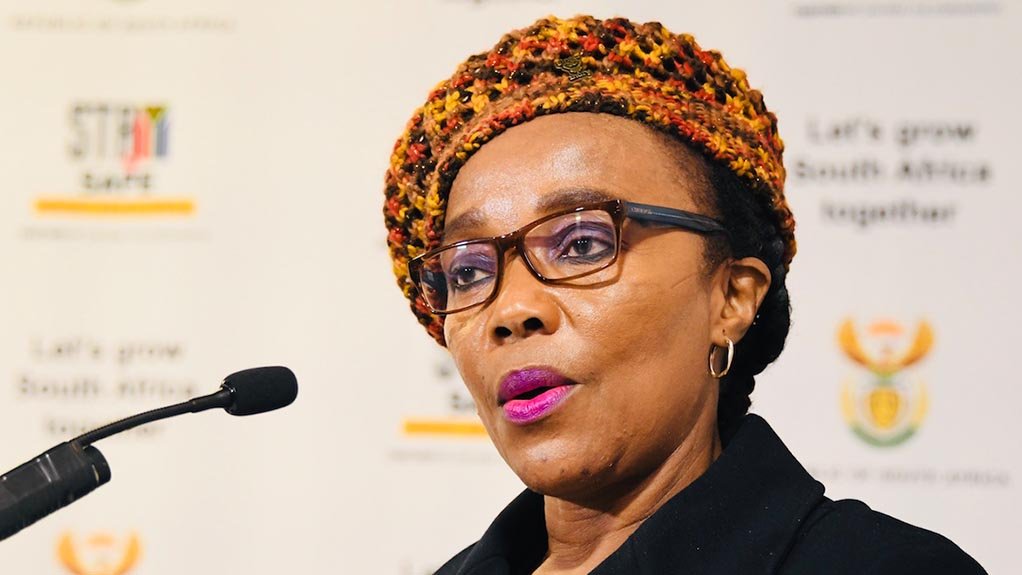Transport sector has role to play in sustainable economies – Chikunga
The transport sector is not untouched by climate change and also has considerably high negative externalities, and this necessitates innovative thinking around the opportunities to renavigate transport systems towards greater resilience and becoming a true enabler of sustainable economies.
This was emphasised by Minister of Transport Sindisiwe Lydia Chikunga, delivering the keynote address on the first day of the forty-first South African Transport Conference, being held in Pretoria this week.
Chikunga said that, as the stakeholders in the industry look to rethink transportation, they must first identify and respond to the current existing modalities, which makes building resilient transport systems difficult to achieve.
This, she said, includes glaring extensive vulnerabilities, which include a lack of harmonisation of policy, regulation and automated planning across the region.
“These are critical to address as they increase the cost of doing business, including doing business across borders, in important subsectors such as freight, transport and logistics, among others,” Chikunga pointed out.
She emphasised that the Department of Transport had committed to building transport, infrastructure and transport systems that enabled safer, secure and cost-effective mobility of all people, and as part of this, had committed to reduce the carbon footprint of transport.
A major task to achieve the reduction of carbon emissions included addressing global externalities, such as environmental, road infrastructure, damage, condition, and accidents, Chikunga highlighted.
She informed that the department was in the process of establishing a transport economic regulator to avoid externalities occurring in this regard, and said she was hopeful of having this finalised and signed off by the President during the current political term.
Chikunga also mentioned the need for government to improve the design of incentives to reward those whose transport production or consumption activities resulted in positive externalities.
She noted that government had already embarked on a process of developing and implementing a public transport subsidy, with the aim to stimulate increased use of this and reduce less intrusive transport modes.
Moreover, there was a need for subsidies for the use of cleaner fuels, Chikunga indicated.
Chikunga indicated that to deal with the well-known challenges experienced by the rail and road industry, there was an increasing role to be played by the private sector, and that government would engage with private-sector operators in this regard as part of its efforts to tackle this.
She added that the private sector could also participate by identifying solutions to negative externalities through bargaining among affected parties.
Chikunga also informed that the department would soon be signing a memorandum of understanding with the Council for Scientific and Industrial Research, which it believed would take it forward, as the decisions it took would be based on research and information.
Meanwhile, World Bank Europe and Central Asia Transport Global Practice manager Karla Gonzalez Carvajal emphasised that the sector must rethink the social impact of transportation systems; and also, that there is a need to rethink public transport to prioritise the systems’ users instead of the system itself.
Article Enquiry
Email Article
Save Article
Feedback
To advertise email advertising@creamermedia.co.za or click here
Press Office
Announcements
What's On
Subscribe to improve your user experience...
Option 1 (equivalent of R125 a month):
Receive a weekly copy of Creamer Media's Engineering News & Mining Weekly magazine
(print copy for those in South Africa and e-magazine for those outside of South Africa)
Receive daily email newsletters
Access to full search results
Access archive of magazine back copies
Access to Projects in Progress
Access to ONE Research Report of your choice in PDF format
Option 2 (equivalent of R375 a month):
All benefits from Option 1
PLUS
Access to Creamer Media's Research Channel Africa for ALL Research Reports, in PDF format, on various industrial and mining sectors
including Electricity; Water; Energy Transition; Hydrogen; Roads, Rail and Ports; Coal; Gold; Platinum; Battery Metals; etc.
Already a subscriber?
Forgotten your password?
Receive weekly copy of Creamer Media's Engineering News & Mining Weekly magazine (print copy for those in South Africa and e-magazine for those outside of South Africa)
➕
Recieve daily email newsletters
➕
Access to full search results
➕
Access archive of magazine back copies
➕
Access to Projects in Progress
➕
Access to ONE Research Report of your choice in PDF format
RESEARCH CHANNEL AFRICA
R4500 (equivalent of R375 a month)
SUBSCRIBEAll benefits from Option 1
➕
Access to Creamer Media's Research Channel Africa for ALL Research Reports on various industrial and mining sectors, in PDF format, including on:
Electricity
➕
Water
➕
Energy Transition
➕
Hydrogen
➕
Roads, Rail and Ports
➕
Coal
➕
Gold
➕
Platinum
➕
Battery Metals
➕
etc.
Receive all benefits from Option 1 or Option 2 delivered to numerous people at your company
➕
Multiple User names and Passwords for simultaneous log-ins
➕
Intranet integration access to all in your organisation



















